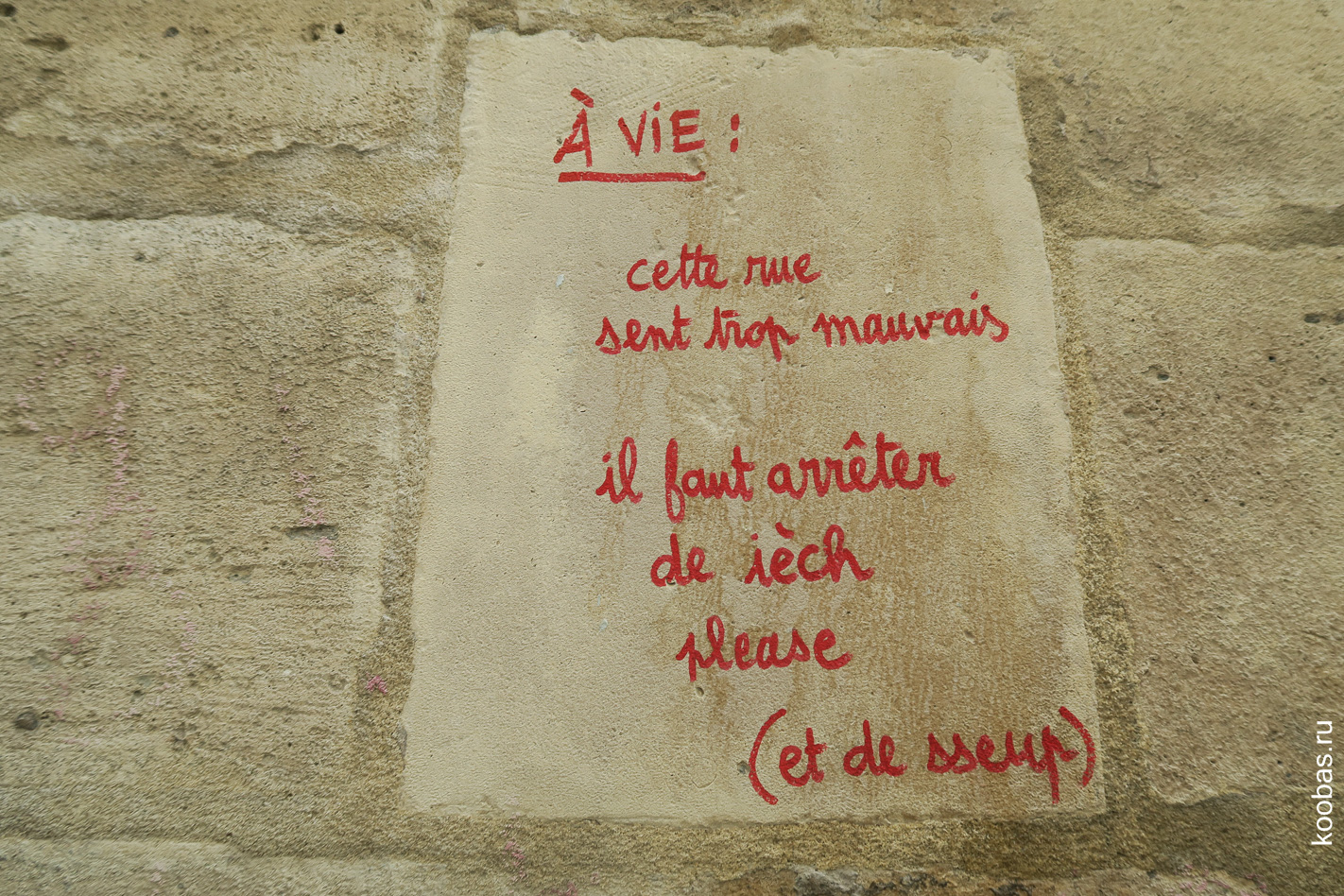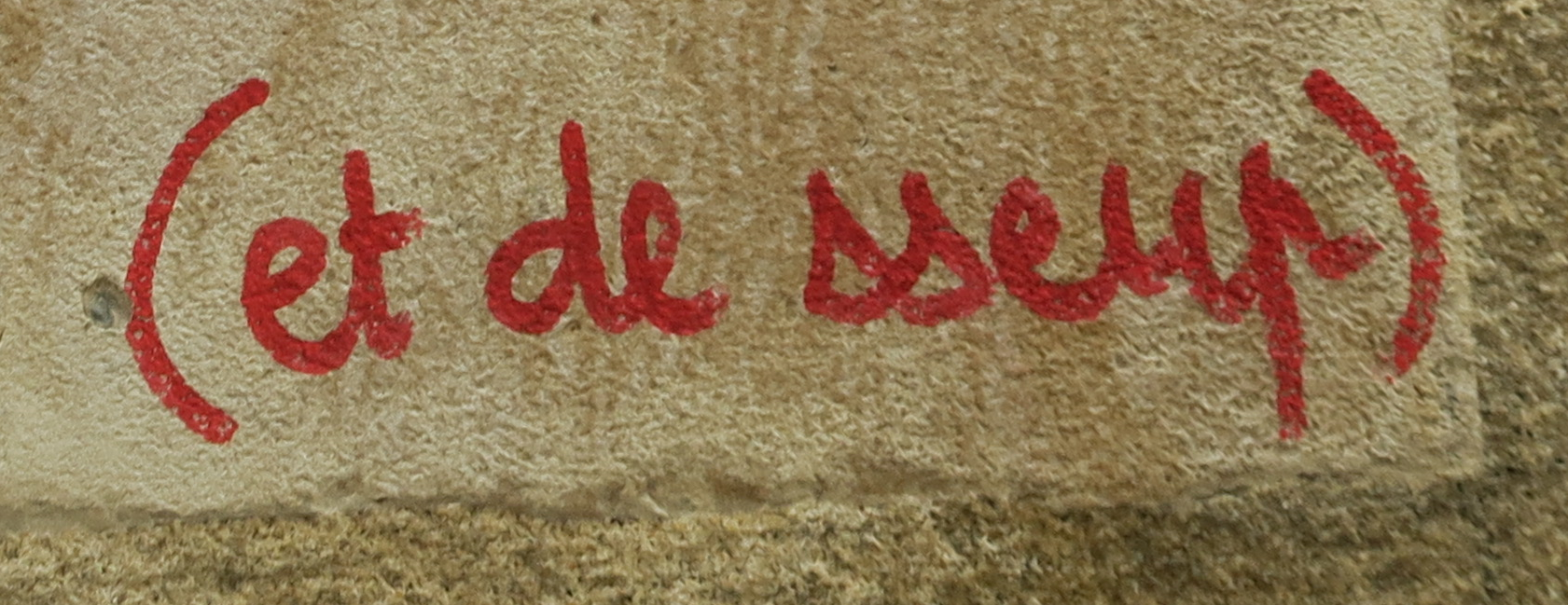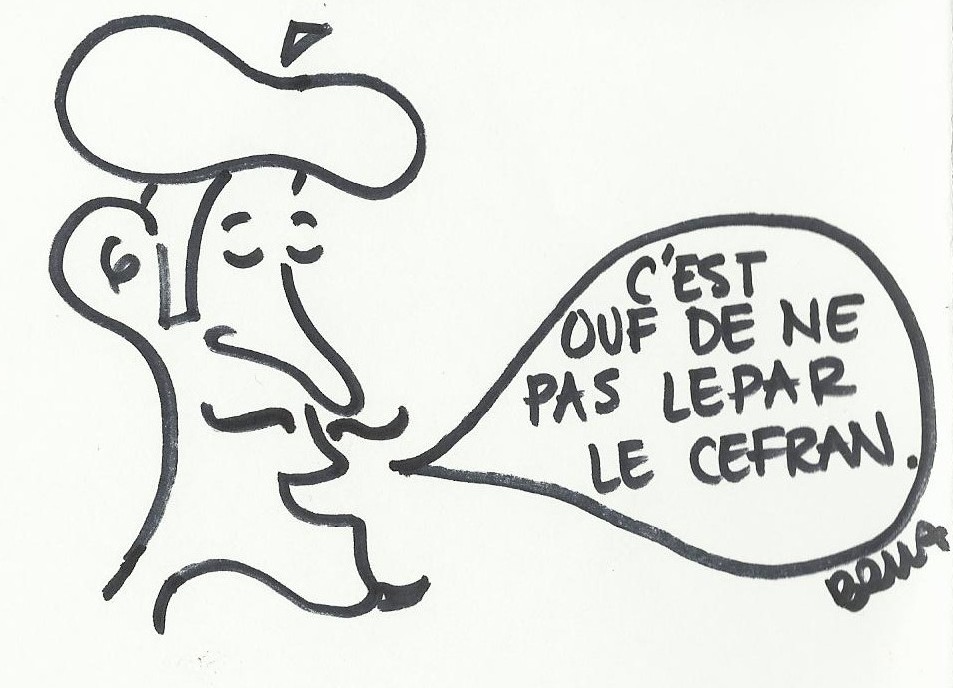There's probably nothing in the world I talk about more often than linguistic curiosities :) I stumbled upon this one when I wanted to find out what the nickname Stromae means (when I was in school, he was popular). And I learned that the word stromae is "maestro" backwards, and in general in French there's a whole argot (something like a "secret" language).
This phenomenon is called - verlan (verlan, from French "l'envers", which is pronounced "lanver" and translates as "backwards").
Historically this argot was used by lower classes. Currently it can be used by anyone, especially those categories of citizens who either need to stand out from others, or hide the meaning of what was said (i.e., for example, youth).
Look, for example, at this graffiti right from the center of Paris.

Here it says "This street stinks badly, please, it's time to stop iech (and sseup)".
Let's figure it out :)

iech - these are reversed syllables from chier (to shit).

With sseup it's even more complex: this is pisse (to piss), where syllables switched places (became ssepi). In the syllable sse the vowel isn't pronounced, so in such cases the vowel eu is added, so it became sseupi. Well, and at the end the vowel turned out to be out of place, so sseup.
Overloaded, sorry.
What's the trick?
I perceive French speech by ear about 50%, written texts about 80%. This is enough - I already told about linguistic redundancy, a person often needs only half of what's heard/read for understanding, but to answer - you need much more. I studied French in school, and then 5 years of Spanish at university - and now I understand the Romance group of languages by ear normally (French, Italian, Portuguese too).
The main problem is that as soon as verlan is used - the percentage of understanding drops to zero for those who don't know about this phenomenon, and to about 10% for those who do.
They say this helped the French a lot during World War II, although there, in my opinion, the whole world resorted to tricks - so, for example, Americans used native Indians for communication. For example, they'd take two Indians who speak a language that, God willing, maybe 10 Indians understand. Put them in different ends of the country and voila - you don't even need to bother with encryption.
Well, since you're already trained, here you go:
